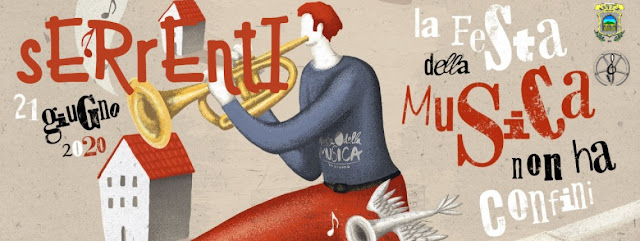21st of June: World Music Day
Written by Tiziana Pasciuto
Translated by Sarah Fortunée Tabbakh
The 21st of June is promoted by the MiBACT (Ministry of Cultural Heritage and Activities and Turism) and the AIPFM (Italian Association for the Promotion of Music Celebration) as World Music Day, in collaboration with SIAE (Italian Copyright Collecting Agency), the Ministry of Education, University and Research, the Ministry of Foreign Affairs, the Ministry of Defence, the Ministry of Justice, the Ministry of Health, the Anci (National Association of Italian Municipalities) and the Conference of Regions.
Music is, in fact, an integral part of the cultural identity of a people: Italy illustrates this perfectly, as the plurality and diversity of the Italian culture are revealed through dances and rhythms that are not only specific to regions, but in some cases, to towns and villages. Therefore, music is an important part of ethnography, which gave birth to an interesting branch of study called ethnomusicology.
Since the beginning of time, man has seen music as a gift, as it could initiate direct contact with the divinities; as such, through the centuries, all musical devices have been celebrated for the musical magic they produce, to an extent that they were seen as living tools able to absorb the musician’s virtues and embellish the melody.
However, the people who benefit from the music produced by instruments tend to forget that, being made of raw materials, they are, as any other object of daily use or any other precious item, subject to phenomena of degradation. In fact, the most important part of a musical instrument does not reside in its aesthetic, but in its playability and the beauty of the sound it produces.
Just think of the art of lutherie, which has dedicated centuries of study and experimentation into searching for the perfect union between aesthetics and acoustics. This is why musical instruments are the result of a series of innumerable equilibriums, different for each exemplary created, even if produced by the same luthier.
So when you attend one of the amazing concerts organised by the appointed institutions, remember that the sound produced by these wonderful instruments is the result of the marriage of human ingenuity and precious materials, of executive ability and subtle magic that allows these pieces of wood and brass to produce unforgettable immortal melodies.
To find out more about this topic (links in Italian):
Music is, in fact, an integral part of the cultural identity of a people: Italy illustrates this perfectly, as the plurality and diversity of the Italian culture are revealed through dances and rhythms that are not only specific to regions, but in some cases, to towns and villages. Therefore, music is an important part of ethnography, which gave birth to an interesting branch of study called ethnomusicology.
Since the beginning of time, man has seen music as a gift, as it could initiate direct contact with the divinities; as such, through the centuries, all musical devices have been celebrated for the musical magic they produce, to an extent that they were seen as living tools able to absorb the musician’s virtues and embellish the melody.
However, the people who benefit from the music produced by instruments tend to forget that, being made of raw materials, they are, as any other object of daily use or any other precious item, subject to phenomena of degradation. In fact, the most important part of a musical instrument does not reside in its aesthetic, but in its playability and the beauty of the sound it produces.
Just think of the art of lutherie, which has dedicated centuries of study and experimentation into searching for the perfect union between aesthetics and acoustics. This is why musical instruments are the result of a series of innumerable equilibriums, different for each exemplary created, even if produced by the same luthier.
So when you attend one of the amazing concerts organised by the appointed institutions, remember that the sound produced by these wonderful instruments is the result of the marriage of human ingenuity and precious materials, of executive ability and subtle magic that allows these pieces of wood and brass to produce unforgettable immortal melodies.
To find out more about this topic (links in Italian):



Comments
Post a Comment